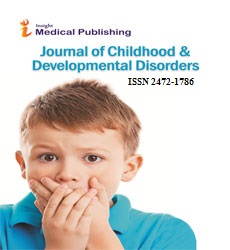Abstract
Vitamin D Adequacy and Improvements of Comorbidities in Persons with Intellectual Developmental Disabilities
The prevalence of vitamin D deficiency is alarmingly high among people with developmental disabilities. In addition to enhancing mineral metabolism, vitamin D affects neuro-modulation, muscle coordination, immunity, infections and autoimmune disorders. Peer-reviewed papers from PubMed, Medline, and other research databases were searched using key words to collate relevant evidence in preparation of this evidence-based review. Per the guidelines from the Preferred Reporting Items for Systematic Reviews and Meta-Analyses (PRISMA), general interpretations of results are included taking into consideration the risk–benefits, broader evidence, and implications for practicing clinicians. Many clinicians consider the minimum level of serum 25-hydroxy vitamin D [25(OH)D] required for optimal health in the normal population to be 30 ng/mL (75 nmol/L), whereas a lesser number consider the level to be 20 ng/mL. However, evolving data suggest that for vulnerable populations, such as those with autoimmune disease, cancer, cardiovascular diseases, metabolic syndrome, and persons with developmental and intellectual disabilities, 40 ng/mL (100 nmol/L) might be considered the minimum level. To reach this level, most people requires adequate sun exposure and/or a daily oral supplementation of between 1,000 and 5,000 International Units of vitamin D. This review explores vitamin D requirements for the musculoskeletal and non-skeletal systems and its adequacy in relationship to common disorders affecting persons with intellectual disabilities.
Author(s):
Sunil J. Wimalawansa
Abstract | Full-Text | PDF
Share this

Google scholar citation report
Citations : 504
Journal of Childhood & Developmental Disorders received 504 citations as per google scholar report
Abstracted/Indexed in
- Google Scholar
- China National Knowledge Infrastructure (CNKI)
- Directory of Research Journal Indexing (DRJI)
- WorldCat
- Publons
- Geneva Foundation for Medical Education and Research
- Secret Search Engine Labs
- Euro Pub
Open Access Journals
- Aquaculture & Veterinary Science
- Chemistry & Chemical Sciences
- Clinical Sciences
- Engineering
- General Science
- Genetics & Molecular Biology
- Health Care & Nursing
- Immunology & Microbiology
- Materials Science
- Mathematics & Physics
- Medical Sciences
- Neurology & Psychiatry
- Oncology & Cancer Science
- Pharmaceutical Sciences

